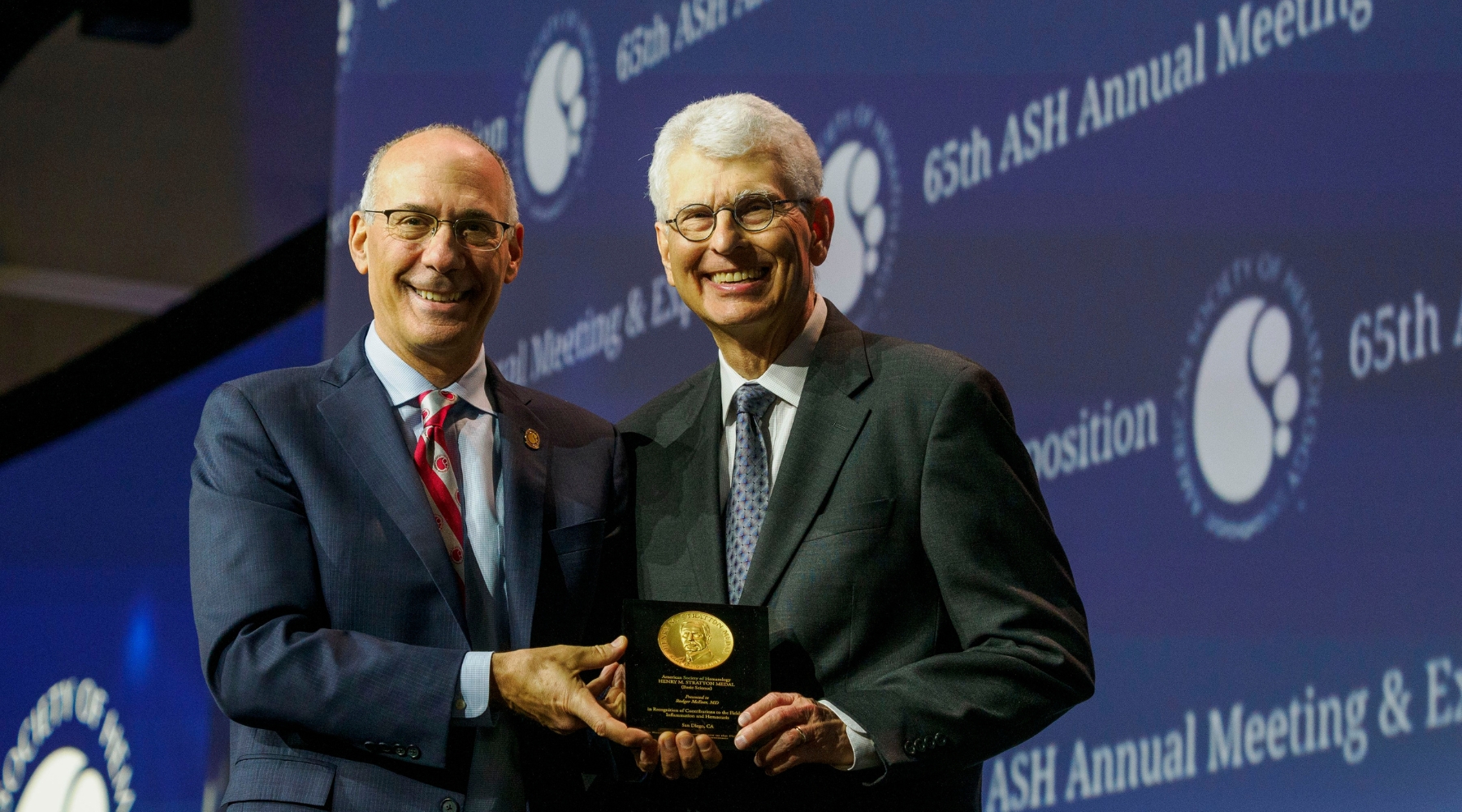The American Society of Hematology (ASH) presented physician-scientist Rod McEver, M.D., with its 2023 Henry M. Stratton Medal for his pivotal discoveries over a 36-year career at the Oklahoma Medical Research Foundation during its 65th annual meeting held this week in San Diego.
The medal, one of the field’s top honors, recognizes investigators who have made outstanding contributions to hematology.
The society selected McEver for his pioneering work that led to the discovery and characterization of P-selectin, a protein in the blood that plays a crucial role in inflammation and blood clotting. His work gave birth to the first FDA-approved treatment for the pain crises associated with sickle cell disease. The condition affects an estimated 100,000 Americans and 5 million people worldwide.
OMRF scientist Lijun Xia, M.D., Ph.D., nominated his longtime mentor and colleague for the honor.
“Dr. McEver’s dedicated focus on basic research has led to major clinically relevant results – the ideal outcome for any physician-scientist,” Xia said. “He exemplifies the spirit of the Henry M. Stratton Medal.”
ASH presents the Stratton medal annually to two people – one each for basic science and clinical/translational research. It was named for Henry M. Stratton, who co-founded the medical publishing house that first published the society’s flagship journal, Blood.
“Dr. McEver has left a lasting mark on our field. His unwavering dedication to the betterment of patient care, research and education in hematology has significantly enhanced the lives of those afflicted with blood disorders,” said ASH President Robert Brodsky, M.D., of Johns Hopkins University School of Medicine. “ASH values the opportunity to acknowledge visionary leaders who are tirelessly advancing the field of hematology.”
McEver has served on several ASH committees and was its Scientific Program co-chair in 2008. At OMRF, he mentored more than 40 postdoctoral researchers and graduate students over his career.
A graduate of John Marshall High School in Oklahoma City, McEver first came to OMRF as a Sir Alexander Fleming Scholar at age 17. He earned his bachelor’s degree from Yale University and attended medical school at the University of Chicago before returning to OMRF to open his lab in 1987.
McEver had considered becoming a historian until writing his first research paper on a historical event. “I learned that writing a compelling narrative based on examining diverse primary historical materials is very difficult! I retreated to science and medicine,” McEver said.
The hematologist and cardiovascular biologist served the foundation as a principal investigator, program chair and vice president of research. McEver retired in March but continues to support OMRF in an emeritus role as a Distinguished Career Scientist.
“I can’t think of anyone more deserving of this recognition,” said OMRF President Andrew Weyrich, Ph.D. “Dr. McEver’s contributions to hematology are monumental. He represents the most noble aspects of science, medicine and OMRF.”



